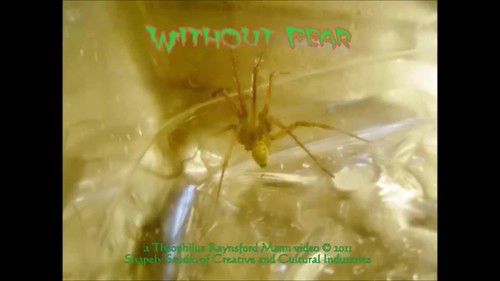Our Own Civilization By C.e.m.joad Pdf
Joad second from right on the in June 1932 In his early life Joad very much shared the desire for the destruction of the. He was expelled from the in 1925 because of sexual misbehaviour at its summer school, and did not rejoin until 1943. In 1931, disenchanted with Labour in office, Joad became Director of Propaganda for the. Owing to the rise of 's pro-Fascist sympathies, Joad resigned, along with. Soon afterwards he became bitterly opposed to, but he continued to oppose militarism and gave his support to organisations, including the and the.
While at Birkbeck College Joad played a leading role in. The motion, devised by David Graham and debated on Thursday 9 February 1933, was 'that this House will in no circumstances fight for its King and Country.” The debate was often interpreted as illustrating both the attitude of Oxford undergraduates and the state of Europe at the time; Adolf Hitler had become Chancellor of Germany just ten days prior to the debate. Joad was the principal speaker in favour of the proposition, which passed by a vote of 275 to 153. Joad’s speech was described as “well-organized and well-received, and probably the single most important reason for the outcome of the debate.” Joad's part in the debate caused him to gain a public reputation as an absolute pacifist. Joad was also involved in the, which he chaired, 1937-38.
Our Own Civilization By C E M Joad Pdf
For Civilization, London: Macmillan (1940) Journey Through the War Mind, London: Faber & Faber (1940) Philosophy For Our Times, London: Thomas Nelson & Sons (1940) 'Principles of Peace', The Spectator, London (16 August 1940; repr. Our Own Civilization By C.e.m.joad Pdf Creator. The Story of Our Civilization Author: Reisner, George Andrew 1867-1942. CIVILIZATION AND HISTORY (C.E.M. Under the Fifth Rib: A Belligerent Autobiography (London: Faber & Faber, 1. The Book of Joad, London, 1. Counter Attack from the East: The Philosophy of Radhakrishnan (London. The Story of Civilization was written in 1931. Author Cyril Edwin Mitchinson Joad was one of Britain’s most colorful and controversial intellectual figures of the 1940s.
Joad was an outspoken controversialist; he declared his main intellectual influences were and. He was strongly critical of contemporary philosophical trends such as, and. He was also repeatedly referred to as 'the of England', although, as Kunitz and Haycraft pointed out, Joad and Mencken 'would be at sword's point on most issues'. Joad crusaded to preserve the English countryside against industrial exploitation,, overhead cables and destructive tourism. Download lagu sayang apa kabar denganmu disini ku merindukanmu. He wrote letters and articles in protest against decisions being made to increase Britain's wealth and status, as he believed the short term status would bring long term problems. He organised rambles and rode recklessly through the countryside.
Joad was also associated with the fledgling movement in England. He also had a passion for hunting. Hating the idea of nothing to do, Joad organised on average nine lectures per week and two books per year.

His popularity soared and he was invited to give many lectures and lead discussions. He also involved himself in sporting activities such as tennis and, and recreational activities such as, and the. He was a great conversationalist, and enjoyed entertaining distinguished members of society.
After the outbreak of the he became disgusted at the lack of being shown (he was a founding vice-president of the from 1934). He went as far as to beg the to make use of him. In January 1940 Joad was selected for a BBC Home Service wartime discussion programme, The Brains Trust, which was an immediate success, attracting millions of listeners. Shortly afterwards Joad abandoned his pacifism and placed his support behind the British war effort. Although Joad never reverted to pacifism, he actively supported at least one during the war, leading to a pamphlet, The Present Position of Conscientious Objection, published by the Central Board for Conscientious Objectors, 1944. Joad also opposed the continuation of conscription into peacetime, writing the pamphlet The Rational Approach to Conscription, published by the No Conscription Council, 1947.
Psychical research [ ]. • 'Monism in the Light of Recent Developments in Philosophy', Proceedings of the Aristotelian Society, N.S. Resident evil the umbrella chronicles walkthrough.
17 (1916–17) • ', London: Fabian Society [Tract 182] (1917) • The Diary of a Dead Officer, Being the Posthumous papers of A.G. With intro, London: George Allen & Unwin (1918) •, London: George Allen & Unwin (1919, 2nd ed., London: GA & U (1933)) •, London: Methuen (1921) •, London: T. Fisher Unwin (1922) •, London: Jonathan Cape (1922) • Introduction to Modern Political Theory, Oxford: The Clarendon Press (1924) • Priscilla and Charybdis, and Other Stories, London: Herbert Jenkins (1924) • Samuel Butler (1835–1902), London: Leonard Parson (1924) • 'A Realist Philosophy of Life', Contemporary British Philosophy, Second Series, ed. Muirhead, London: George Allen & Unwin (1925) • ‘The Mind and Its Place in Nature’, London (1925), Kegan Paul, Trench, Tubner and Co.,Ltd • Mind and Matter: The Philosophical Introduction to Modern Science, London: Nisbet (1925) • The Babbitt Warren [A Satire on the United States], London: Kegan Paul (1926) • The Bookmark, London: The Labour Publishing Company (1926, repr.